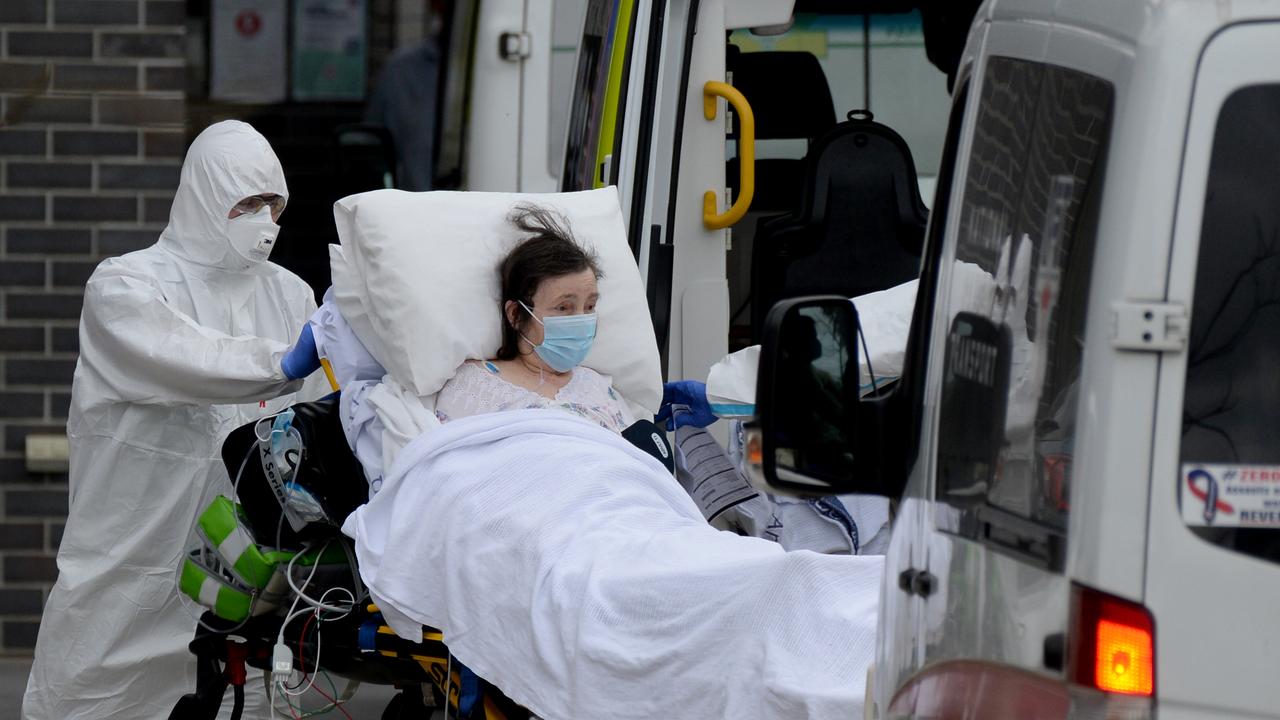Long COVID: Most Australians who get critically ill experience ongoing health impacts
Most Australians who get critically ill with COVID-19 have lingering health issues, early results from a study shows, although the seriousness varies.

About two in three Australians have ongoing health issues after being critically ill with COVID-19, early results from a study shows.
The COVID Recovery Study has been tracking about 200 patients across 30 different hospitals in Australia about the lingering impacts of getting the coronavirus, six to 12 months after they were infected and admitted to an Intensive Care Unit (ICU).
Monash University Professor Carol Hodgson told the ABC that early results showed about 30 per cent of people were “alive and disability free” six months after contracting the virus.
The other 70 per cent of patients mostly experienced mild symptoms including shortness of breath and weakness, with a small number having a persistent cough, headache, or loss of taste and smell.
Those who were the most sick were the most likely to have continuing health issues.
Burnet Institute principal research fellow Joseph Doyle said COVID-19 was “far more serious” than influenza, in both the initial infection and the potential longer-term impacts.
“[COVID-19] clearly has a much higher chance of killing you when you get it than the flu does, and a much higher chance of getting you into hospital and intensive care,” he told the ABC.
However, not everyone will experience ongoing issues, especially if they have only had a mild cases, and most people do recover fully.
RELATED: People find things smell ‘rancid’ months after getting COVID

RELATED: Extra reason for Aussies to get jab
Dr Doyle said that because COVID-19 was mainly a lung infection, there was a risk of lung damage leading to a lack of exercise capacity and fitness that could take weeks or months to recover.
He said there were “some very specific symptoms”, including weakness and tiredness, which lingered following COVID in some patients.
Other patients whose immune systems become overactive can get blood clots, or have heart attacks and strokes, which also have their own long-term consequences.
“COVID doesn’t just affect the lungs and make you sick like some other viruses do,” Dr Doyle said.
Being hospitalised, especially if you spend a lot of time in Intensive Care, can also cause issues regardless of what condition you have.
About half of the critically ill patients in the Australia study needed to be put on ventilators while in Intensive Care and these were usually in hospital for about four weeks.
“Four weeks [total] in hospital, that does result in significant ICU-acquired weaknesses,” Prof Hodgson said.
She said this was caused by a “cytokine storm”, in which cells release cytokine, a protein that causes inflammation and a breakdown of muscle protein.
“We know that this [muscle breakdown] can be quite prolonged and can last up to five years in other types of critically ill patients.”
She said the symptoms reported in the Australian study were more likely to be physical than psychological, but the scientists were “seeing an increased number of patients who test positive to being at risk of post-traumatic stress”.
Vaccinations are the best protection against such long-term effects of COVID, she said.
Editor’s note: The original version of this story incorrectly stated that 70 per cent of ALL COVID patients still suffered lingering symptoms. It is only 70 per cent of those who were critically ill with the virus.



